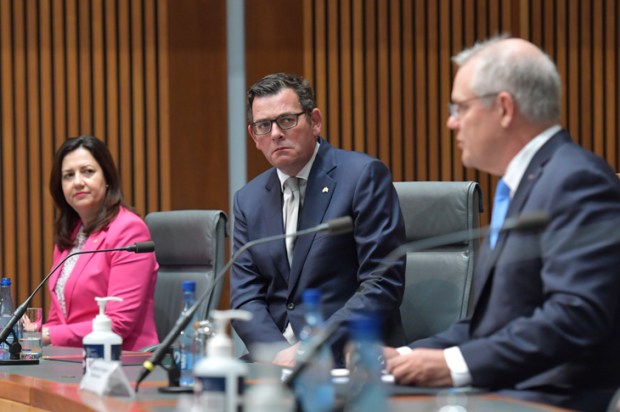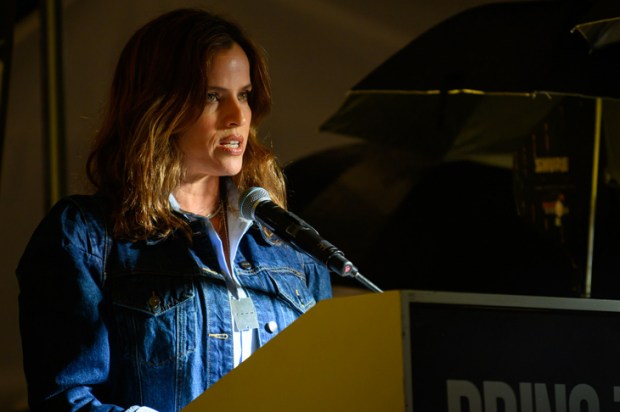Welcome to whingeanomics, where facts never stop the whingeing and the biggest whingers get the headlines, and your money. Take the case of ‘Jane’ (the media name) and the Family Court of Australia. It made a great Christmas heartbreak story, so formulaic it could have been written by artificial intelligence. The screaming headlines were arresting, ‘“Abusive” father takes girl overseas’ and ‘Indigenous mother fights to have child returned to Australia’. The ‘distraught’ mother of a ‘First Nations girl’ says the child’s human rights were ‘hugely violated’. What actually happened?
An Australian woman, Ms Bamfield, and a Belgian man, Mr Q, (pseudonyms used in the judgements) lived in Australia in 2019. They married in Belgium in that year. Their child was born in 2020 in Belgium and was brought to Australia by her mother when seven months old, in September 2020, with the agreement of the father that she stay for two months. A month later the mother informed the father that she and the child would not be returning to Belgium. The father applied to the Family Court of Australia for the child’s return under the Hague Convention. The court made orders in December 2021 for the return of the child. The mother appealed in January 2022. She lost the appeal, sought leave to appeal to the High Court, leave was refused.
During this time, and in the father’s absence, the mother was successful in obtaining an interim apprehended domestic violence order against her now former husband in the NSW magistrate’s court. In January 2021 court proceedings on divorce and parenting were commenced by the father in Belgium. The father came to Australia prior to Christmas 2022 to retrieve his daughter.
Was there any substance in the mother’s allegations? The Australian judge thought not.
The father was considered a reliable witness. By contrast, the Australian judge found the mother’s evidence ‘to be exaggerated in accordance with her desire that she and [the child] remain in Australia’. Allegations against the father did not appear in the mother’s affidavit, only in the mother’s documents for conditions to return.
The mother claimed that she was coerced to give birth and remain in Belgium and that it was always her intention to live in Australia. The evidence proved the contrary. The mother retrospectively claimed to have been appeasing the father for fear of what he might do when angered and that living in Belgium was a short-term trial. The judge’s impression was that the mother ‘was attempting to rewrite history’. The judge found her to be an unreliable witness.
The mother’s allegations of being locked in her room, and being treated cruelly by the father, did not square with the father consenting to the child travelling to Australia. The judge concluded that if life was as wretched in Belgium as the mother alleged, that the mother would have sought to leave with the child earlier. If the father’s treatment of her was as brutal as she alleged, the father would have been unlikely to have consented to the child leaving Belgium.
Then the mother played the race card. One ground of appeal against the father in the Hague matter was that to return the child would be a ‘grave risk of an intolerable situation’. Intolerable because, in parenting proceedings, the child’s Aboriginality would not be considered by the courts in Belgium in the same way as it would be considered by the courts in Australia.
The mother claimed to be Aboriginal. Of the three tests for Aboriginality – descent, belonging, and being accepted – no one challenged the first. On the second leg, the court accepted that she identified. The trouble came with the third leg. What was some of the evidence? ‘Helping my dad with the fire in the evening… collecting sticks. While this is not a ceremony, the building of a fire involves elements of welcome to country ceremonies that are important to pass down’. The judge concluded, ‘I was not taken to any cogent evidence which would constitute recognition or acceptance by members of the [T] community of the mother as [an Aboriginal] woman.’
The child, however, was held to be Aboriginal because descent was enough under family law. But no one dared test the mother. Photographic evidence in media suggests a very distant link. The fear of offending an unreliable witness has become a standard of proof in Australian courts on the question of race.
The Family Court judge was as woke as they come. She wrote, ‘courts and judges were instruments of oppression of First Nations Australians…. That is why judicial education about the culture and socio-economic plight of First Nations Australians is considered essential for judicial officers’. Despite being sent to re-education camp, the judge had to concede ‘that does not mean that sending [the child] back to Belgium will place her in an intolerable situation’. The judge further observed, ‘my impression is that the mother’s real grievance is that she perceives she may receive a less favourable outcome in Belgium’. The mother’s submissions in the Belgian court (and at the High Court) did not raise the status of the child or the mother as ‘First Nations Australians’.
‘Jane’ is reported to have said, ‘This is a case where the best interests… (of) the First Nations child have been – ignored.’ No, they haven’t Jane. The Hague Convention is used to decide where a matter will be heard. It is about jurisdiction. Imagine the same story written from the father’s perspective and published in the Belgian media. ‘Belgian father’s brave dash to Australia to recover stolen child’. Why drag down the institutions that make both the Belgian and Australian nations great? Why listen to the fabrications of one side, drawing on every possible whinge – a woman, Aboriginal, subject to violence? Every time these whingeing stories emerge, it is as if society and its institutions have failed. The institutions worked just fine, these people made poor decisions, they must work it out, with the help of the law.
Got something to add? Join the discussion and comment below.
You might disagree with half of it, but you’ll enjoy reading all of it. Try your first month for free, then just $2 a week for the remainder of your first year.













